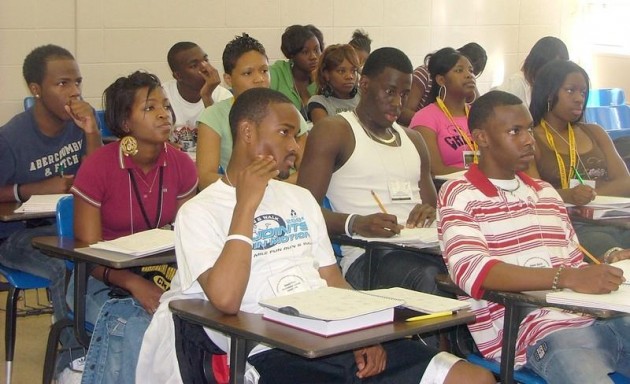
Grambling State University’s College of Arts and Science is doing its part to prepare students who plan to receive a bachelor’s of science degree the areas of science, technology, engineering, or mathematics (STEM).
This summer GSU is hosting the Pre-Freshman Academy, a two-week enrichment program designed to strengthen the participating students’ preparation for university level mathematics.
Students will engage in the manipulation of mathematical concepts and methods for solving problems that are often encountered in STEM areas. The STEM majors are biology, chemistry, computer science, drafting design technology, electronics engineering technology, mathematics, and physics.
Also, students will interpret and analyze data gathered from a variety of scientific experiments. Additionally, study skills that are crucial to their success in STEM areas will be highlighted.
In order to be eligible for the program, students must be admitted to GSU for Fall 2006, plan to major in a science or mathematics, and must be a United States citizen.
Participants will be housed on campus and meals will be provided for them. They will receive a $400 stipend and a $500 textbook award.
Two Pre-Freshman Academy sessions will be offered this summer. Session I will be held June 12 – 23, and Session II will be held July 10 – 21.
The Pre-Freshman Academy is funded by a grant awarded to GSU by the National Science Foundation. It is one of the components of the Center for Mathematical Achievement in Science and Technology (CMAST). Carlyle Roberson is the director of the CMAST.
Dr. Connie Walton-Clement. Clement said the Pre-Freshman Academy is designed to give students admitted to Grambling who are majoring in the science or mathematics are a head start. She said that many students last took a mathematics course during their junior year in high school. "Since science courses are mathematical, this program is a refresher. It will enhance students’ math skills so that they will be better equipped for courses such as physics, chemistry, or engineering," she said.
According to Clement, students will learn how to develop good study skills and learn how to study for science. "The difference between students earning an A or D in a class is based upon the study skills that they employ," said Clement.
